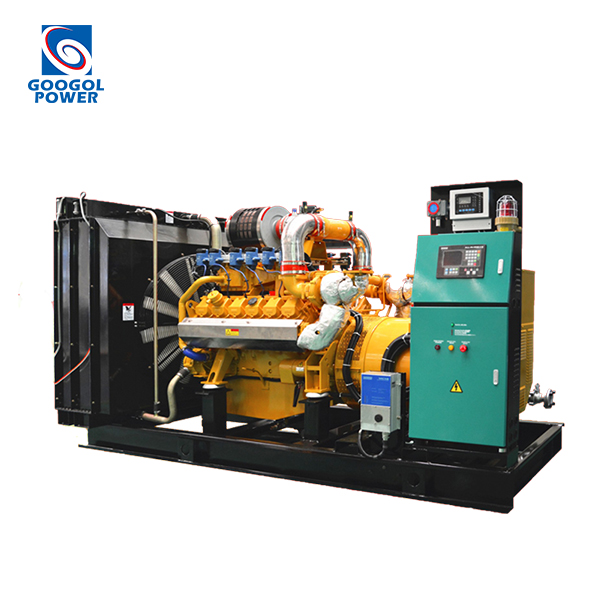- HOME
- ABOUT GOOGOL
- PRODUCTS
DIESEL ENGINE
GENERATOR SETS
- DOWNLOAD
- CASES
- NEWS
- CONTACT US
DIESEL ENGINE
GENERATOR SETS

The fuel consumption of a generator set is an important indicator for measuring the operating cost and efficiency of the equipment. Fuel consumption is influenced by multiple factors, including the type of generator set, power size, load conditions, fuel type and operating environment, etc. Correctly understanding and evaluating fuel consumption data is conducive to optimizing the operation plan and reducing the usage cost.
Firstly, the fuel consumption of a generator set is usually expressed by the amount of fuel consumed within a unit of time, with the common unit being liters per hour (L/h). It can also be expressed by the fuel consumption rate, that is, the amount of fuel required for generating electricity per kilowatt-hour, with units mostly being grams per kilowatt-hour (g/kWh) or liters per kilowatt-hour (L/kWh). The fuel consumption rate can reflect the energy efficiency level of the generator set and is an important basis for evaluating energy-saving performance.
Fuel consumption is closely related to the power of the generator set. Generally speaking, the greater the power, the higher the fuel consumption, but the fuel consumption rate per unit power is usually lower. Large generator sets usually adopt more efficient combustion technologies and have higher thermal efficiency, thus requiring less fuel per kilowatt-hour. Small generator sets have relatively low efficiency and high fuel consumption rates.
Load rate is a key factor affecting fuel consumption. When the generator set operates near the rated load, the fuel utilization rate is high and the fuel consumption per unit of electricity generated is low. If the load is too low, fuel consumption will increase relatively and power generation efficiency will decline. This is because the thermal efficiency of the engine decreases when idling and under low load, resulting in uneconomical fuel consumption. Therefore, rationally configuring the capacity of the generator set and maintaining a stable load play an important role in reducing fuel consumption.

The type of fuel also affects fuel consumption performance. The fuel calorific value of diesel generator sets is relatively high, the combustion efficiency is good, and the fuel consumption is relatively low. Gasoline generator sets burn quickly, but their thermal efficiency is usually lower than that of diesel engines, and their fuel consumption is slightly higher. In recent years, natural gas power generation units have gradually become popular. Due to the different properties of fuels, fuel consumption calculations are usually converted into gas consumption indicators.
Environmental factors cannot be ignored. Environmental conditions such as temperature, humidity and altitude can affect air density and the combustion process. In high-altitude areas, the oxygen content is low, and the combustion efficiency decreases, resulting in increased fuel consumption. In low-temperature environments, changes in fuel viscosity may also affect the fuel injection effect. Good environmental adaptability design and regular maintenance help to control fuel consumption fluctuations.
The maintenance status of the equipment is equally crucial. A clean air filter, a normal fuel injection system, and good cooling and lubrication conditions can all ensure the effective operation of the engine and reduce fuel waste caused by incomplete combustion. Conversely, aging components or untimely maintenance will increase fuel consumption.
The specific fuel consumption data is based on the reference of mainstream models in the market: When small and medium-sized diesel generator sets are operating at full load, the fuel consumption is approximately 0.25 to 0.4 liters per kilowatt-hour. The fuel consumption of gas-fired generator sets is measured in cubic meters per kilowatt-hour, depending on the composition of the gas and the efficiency of the equipment. The fuel consumption of units varies with different power ranges and technical levels.